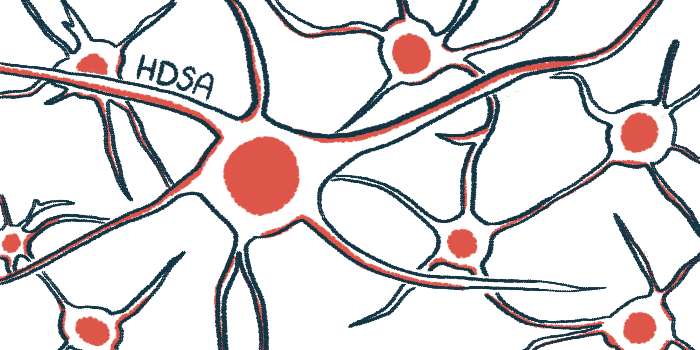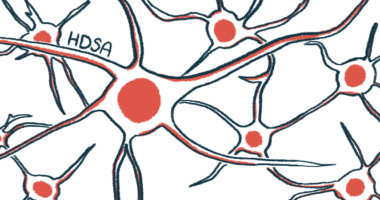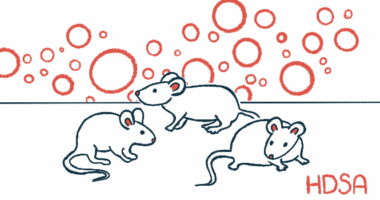HDSA 2024: CEO shares optimism for Huntington’s community
'Families have resources that could not have been imagined 15 years ago'

The outlook for the Huntington’s disease community has never been brighter, with better care options and promising new research already in progress, the president and CEO of the Huntington’s Disease Society of America said at the organization’s 39th annual convention, taking place in Spokane, Washington.
“There has never been a more optimistic time for HD [Huntington’s disease] families,” Louise Vetter said at the convention’s opening ceremony on May 30. “Today, HD families have resources that could not have been imagined 15 years ago: disability specialists, free online telecounseling, webinars, science blogs, podcasts, and a vibrant youth and young adult community that is so much more than one day at convention.”
Huntington’s disease is a genetic disorder marked by symptoms that range from movement abnormalities to cognitive and mental health difficulties. Vetter reflected that, when she started at the HDSA in 2009, the U.S. Food and Drug Administration (FDA) had just approved the oral therapy Xenazine (tetrabenazine) to manage Huntington’s-associated irregular movements known as chorea.
Xenazine was the first medication to be approved for a Huntington’s symptom. However, despite this milestone, “slowing and stopping HD was still just science fiction,” Vetter said, as fewer than a dozen pharmaceutical companies were doing Huntington’s research in 2009, and all were focused on managing symptoms, not targeting the disease’s underlying cause.
“If you can imagine, back then we were talking about the neuroprotective properties of blueberries, and we were pinning our hopes for a cure for HD on a nutritional supplement called creatine,” she said.
Novel medicines being explored to target genetic cause of Huntington’s
More than 15 years since Vetter joined the HDSA, the field has progressed by leaps and bounds thanks to new biomedical technologies, including novel medicines that are being explored as ways to directly target the genetic defect that causes Huntington’s.
“Blueberries and creatine, thankfully, have been replaced with terms like small molecules, ASOs [antisense oligonucleotides], zinc fingers, and CRISPR-Cas9,” Vetter said, referencing several technologies used by potential disease-modifying therapies.
More than 50 pharma and biotech companies are now developing potential new Huntington’s treatments — not only medications to ease symptoms, but also disease-modifying therapies designed to slow or stop the disease’s progression, Vetter said.
In addition, regulatory authorities and legislative leaders are paying more attention to Huntington’s and the needs of people affected by the disease. Later this year, on Nov. 13, the FDA is hosting a meeting with the HDSA and the broader Huntington’s community to help the agency better understand what wellness means for Huntington’s patients.
“The FDA has met with the HD community before. Nine years ago, they hosted their own patient-focused drug development meeting, which is a huge meeting … But this is the first time they have ever agreed to participate in a second, patient-focused drug development meeting with a patient community,” Vetter said. “HD is important enough to them. Science is evolving fast enough that they want to meet with us again, and that is huge.”
Patients need to get involved in research efforts: Vetter
Vetter stressed that, in order for the possibility of new Huntington’s treatments to become a reality, it’s absolutely essential for patients to get involved in research efforts.
“The only way that we get those transformative therapies for HD is if you participate in science. It’s the only way,” she said. “You cannot wait for others to make it happen. You have to get involved.”
Vetter acknowledged that volunteering for research projects “might be terrifying,” but she said “there are lots of ways to get involved in HD science that are really easy.” For example, she suggested completing surveys online or asking clinicians about joining Enroll-HD, an observational study tracking outcomes in up to 30,000 Huntington’s patients.
The HDSA also offers an online tool to help Huntington’s patients find trials they may be able to enroll in, and Vetter urged patients to consider joining any trial for which they are eligible, noting that eligibility criteria for any given trial can often be very specific.
“The right trial to join is the one you are eligible for now. Because if you wait, you may not be eligible for the one you’re holding out for,” she said, adding that participating in research is “the bravest, most meaningful thing you can do for yourself and those you love.”
Slow trial enrollment may signal that the community is not eager for treatments
Vetter also shared what she called “a hard truth” about clinical research. Besides delaying the development of much-needed therapeutic solutions, slow trial enrollment may send a wrong message that the Huntington’s community is not eager for new therapies.
This, along with the higher costs associated with slow enrollment or any other study delays, may discourage future investment from drug developers.
However, Vetter remains “optimistic that we are close to profound progress in caring for and curing HD,” because she is confident the community is “committed to powering the science.”
“I believe in you. We need you,” she said.
Vetter, who recently announced that she will be resigning from her executive roles at the HDSA, ended her presentation by saying: “While I won’t be with you at the 40th anniversary convention, I will always be a part of this family … It has been an honor to serve you.”
Note: The Huntington’s Disease News team is providing virtual coverage of the Annual Huntington’s Disease Society of America (HDSA) Convention May 30-June 1. Go here to see the latest stories from the conference.








